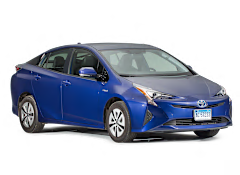Maintenance and repairs are a facet of vehicle ownership many consumers overlook when buying a car. Choosing one of the many reliable vehicles recommended by Consumer Reports is a way to mitigate this significant expense, but sooner or later, complex machines have a tendency to break down, or simply need maintenance. According to AAA, the average cost of an automotive repair is $500 to $600, although anyone who has taken their car in for service knows the price can be much higher.
New research from Consumer Reports shows that pure electric vehicles—which have fewer moving parts—need less maintenance, and generally cost less to repair than the average gas-powered vehicle. Although many buyers are put off by the higher purchase price of EVs, switching from a traditional gasoline-powered car to an electric one can be a great way to save money over the life of the vehicle: Lower fueling costs (plus reduced emissions) combined with lower maintenance and repair costs can offset the purchase price, and even lead to long-term savings, when compared with a gas-powered car of similar size and with comparable features.
Survey results involving hundreds of thousands of CR members show that EV and plug-in hybrid drivers pay half as much to repair and maintain their vehicles. Consumers who purchase an electric car can expect to save an average of $4,600 in repair and maintenance costs over the life of the vehicle compared with a gasoline-powered car, CR's study shows.
"It has long been well known that EVs are cheaper to maintain than their gasoline-powered counterparts," says Chris Harto, CR's senior analyst for transportation and energy. "But this is the first time we've had enough hard data from actual EV owners to prove the point."
Jill Trotta, vice president of marketing and sales at RepairPal, says that by the time a vehicle reaches its fifth year—which is often when expensive items like tires wear out—EVs cost about $900 a year to repair and maintain, whereas comparable gasoline-powered cars cost about $1,200.
Trotta says that typical maintenance items on EVs include the cabin air filters that keep outside dust and particulate out of a car's heating and air conditioning system; brake pads, tires, and suspension components, such as shock absorbers; ball joints; and steering tie rod ends. An EV has a cooling system that uses antifreeze, similar to what would be found in a gasoline engine's radiator, but because there is no danger of contamination by engine oil or combustion byproducts, it doesn't break down and seldom needs to be changed. Trotta says regenerative braking systems found on EVs and some hybrids use resistance from the electric motors to slow the vehicle, so brake pads don't see as much use as they would in a gasoline-powered car.
"With an EV, you don't have as many parts to replace on a regular basis, because there just aren't as many moving parts as in a gasoline-powered car," says Gabe Shenhar, associate director of CR's auto test program. "The oil changes and engine tuneups we all know from gas cars are rendered obsolete by the EV's relative simplicity."
Currently, replacing a battery pack costs $5,500, on average, says RepairPal's Trotta, or roughly the same as an engine replacement in a midrange gasoline vehicle. But battery packs tend to last a minimum of eight to 10 years. Electric motors can be more expensive to replace—ranging from $6,000 to $9,000—but Trotta says they usually outlast the vehicle. Shenhar notes that unlike a gasoline engine, which can fail suddenly, EV batteries typically degrade over time. That means that like a higher-mileage gasoline vehicle, they'll still be useful for shorter trips.
CR's analysis found that repair and maintenance costs could end up rising significantly in higher-mileage EVs, although Harto pointed out that newer models tend to feature better batteries and other improvements over early models. That means that the high-mileage repair numbers could be a lot better in the coming years, as data from current models becomes available.
"Most of those high-mileage EVs on the road right now are first-generation models," Shenhar says. "We know from experience at CR that new vehicle models, of any type, tend to have more reliability issues as manufacturers work out the kinks."
CR's data indicates that future studies could show even greater savings for EVs as a wider selection of younger models age and accrue more miles on the road.
"In our study, most of the EVs in the 100,000-mile-plus range were early versions of the Tesla Model S and Nissan Leaf," Harto says. "Automakers have learned from their earlier models, so current-generation EVs may be more reliable than many of the vehicles shown in the results."
EV warranties also tend to be longer. According to the Department of Energy's Office of Energy Efficiency and Renewable Energy, EVs' relative mechanical simplicity and less frequent need for maintenance has generally led manufacturers to extend warranty coverage to eight years or 100,000 miles. It's not likely they would do that if they thought major repairs would be needed within that time frame.
Battery prices continue to fall, which will most likely reduce EV repair costs further. The DOE is working with the auto industry to improve battery chemistry to more widespread public fast-charging infrastructure, and also to bring down the cost of batteries to less than $100 per kilowatt-hour. The agency estimates that the $1 billion the DOE invested into battery research and development between 1992 and 2012 will have saved American consumers $16 billion in fuel costs by the end of this year.
















